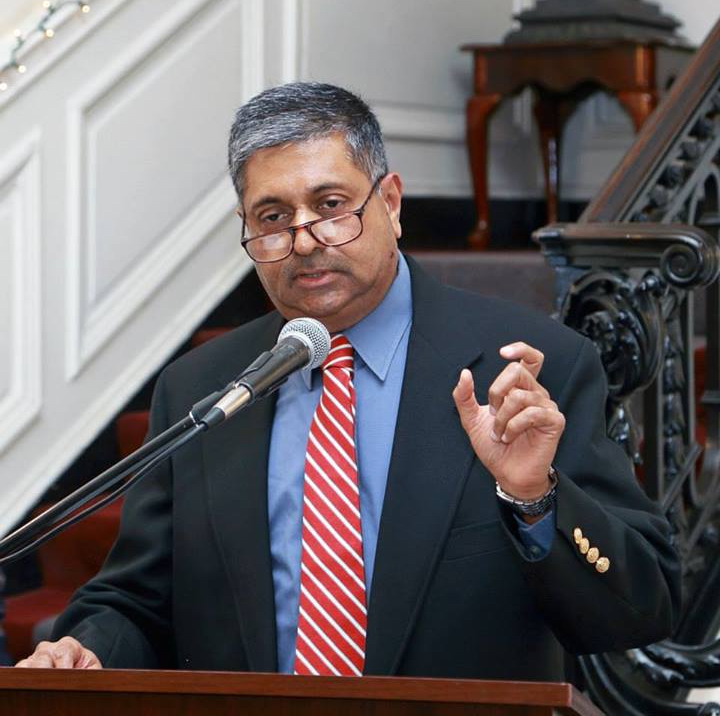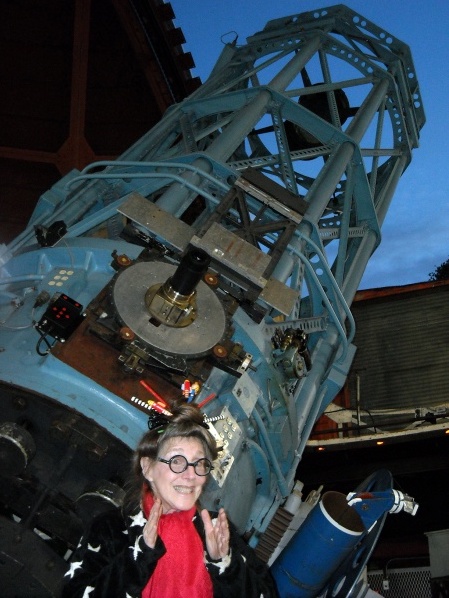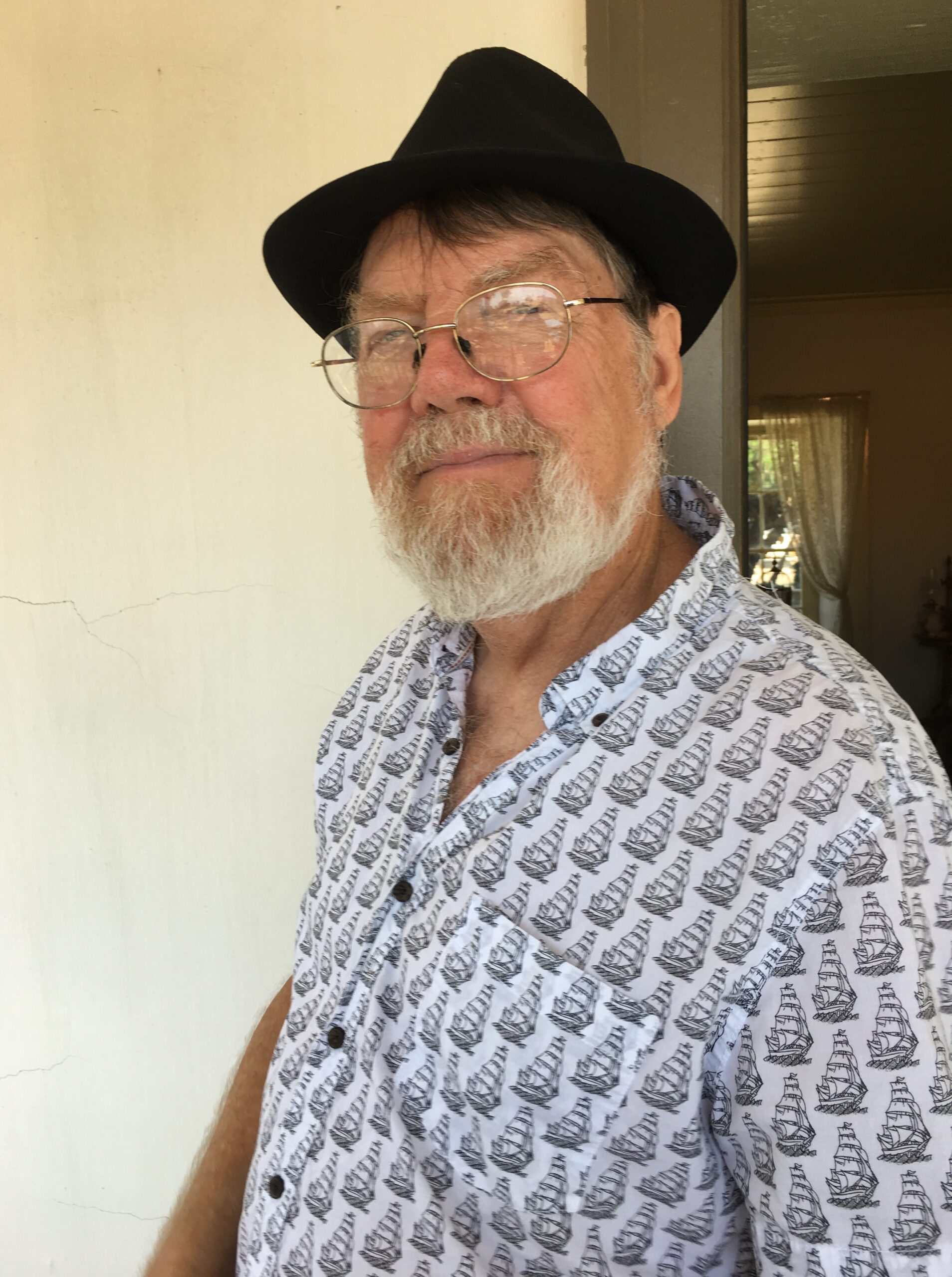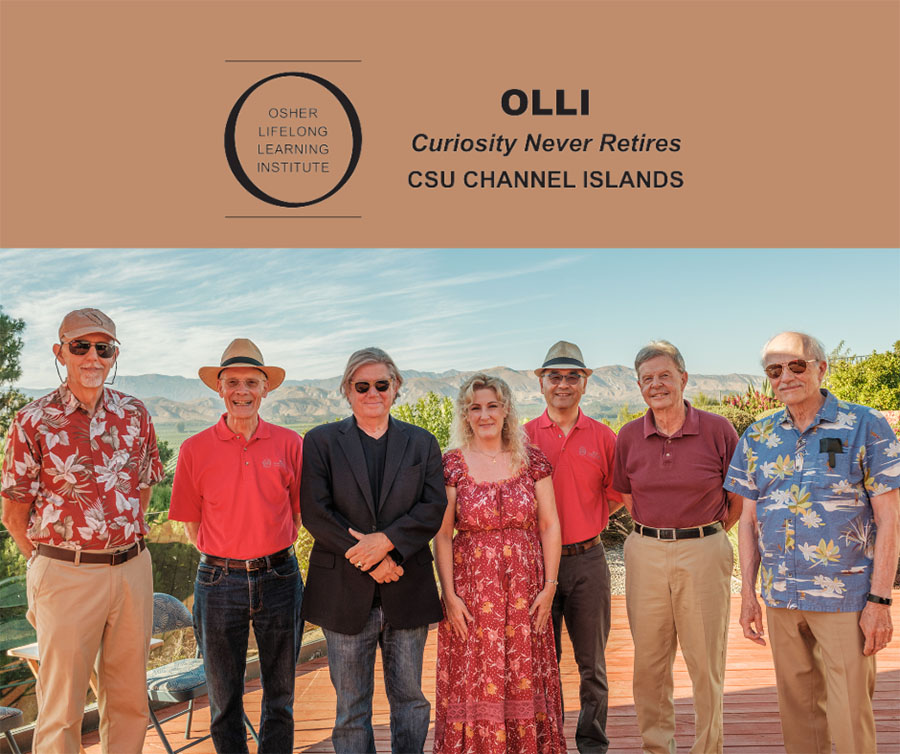CAMARILLO — Classes are underway, but anybody 50+ is welcome to join one of the classes offered by CSU Channel Islands Osher Lifelong Learning Institute (OLLI).
This Fall the OLLI roster includes 10 different six-week lecture topics from popular local instructors, as well as national experts who can speak on everything from astronomy to national politics to Ventura County’s ladies of the evening.
A Maryland academic with three doctorates in world religion, B.N. Hebbar, Ph.D., is teaching a comprehensive course on the history, doctrines, practices, sects, and the major historical figures in Buddhism, which is the majority religion in 13 countries in Asia.
“Some of the metaphysical and ethical teachings of Buddhism are most certainly applicable to the everyday lives of people,” Hebbar said. “If that were not the case, Buddhism would not have remained relevant despite its 2,600-year history.”
Although the art of the Renaissance is most often equated with Italy, Los Angeles Academy of Figurative Art instructor Katherine Zoraster will provide students a comprehensive look at how the Renaissance affected the art north of Italy, such as in France, Germany, England and the Netherlands, and how art can reflect so many different aspects of a certain time period, allowing us to travel back in time.
The remarkable images beamed back to earth by the James Webb Space Telescope expanded our knowledge of what’s out there in the galaxy. Astronomer, writer, lecturer and former Mount Wilson Observatory Telescope Coordinator (and standup comedian) Shelley Bonus will share the latest concepts of cosmology, astronomy and space exploration, as well as talk about news and discoveries regarding “multi-messenger” astronomy, black holes, neutron stars, and gravitational waves.
Regarding earthly history and politics, Massachusetts historian, author and 25-year teaching veteran Paul Macek welcomes a diversity of political thought in his Fall class, “Civic Education on Trump and American History.” Macek will clarify and explore topics such as the Trump presidency in the context of American history; elections; the role of the free press; health care; economics; immigration; and racism.
Macek decided to develop a curriculum not only based on what has transpired during the Trump presidency, but what has transpired earlier in American history to place this period of time in historical context.
“It is not new that we’ve had controversial elections,” Macek said. “In 2016, Hillary Clinton gets the majority of the votes but loses the electoral vote. We have had five elections that have gone that way. Actually, in 1824, it was the strangest election in the sense that Andrew Jackson lost the election to John Quincy Adams yet Jackson won both the popular and the electoral vote.”
California Lutheran University Professor Emeritus Herbert Gooch, Ph.D. will examine the qualities of a hero in “Reflections on the Hero,” a look at what qualities make up the characters we admire, both real and fictional, like Don Quixote, Harry Potter or Lawrence of Arabia. What does it take to be considered a hero in our culture?
The California Gold Rush, World War II and the discovery of oil were among the historical events that brought thousands of men to the Golden State to seek their fortunes or serve in the military. And close behind the men came the oldest profession—prostitution. Local historian/lecturer and storyteller Richard Senate will look at the historical, societal and economic influences that gave rise to Southern California’s prostitution trade in “Soiled Doves and Working Girls.”
“Ventura used to have 30 saloons in a town of 300,” Senate said. “They were never really called brothels, but ‘sporting houses.’ There were different euphemisms for prostitution such as ‘soiled dove.’
Senate will talk about some of the most irrepressible prostitutes in Ventura County such as Lucy Hicks, a transgender Oxnard madam from the World War II era, and Maggie Sullivan, an Irish woman who operated out of a Ventura saloon called “Parian House,” according to Senate.
The lectures are recorded, so individuals who decide to take one of the five- or six-week classes, can catch up on earlier classes and join those that remain via Zoom or in-person.
Joining a six-week class costs $60, plus a $15 one-time fee. To view the current catalog or register for a class, visit:https://ext.csuci.edu/programs/professional-community-ed/osher-lifelong-learning-institute/catalog.htm.
ABOUT CALIFORNIA STATE UNIVERSITY CHANNEL ISLANDS — California State University Channel Islands (CSUCI) is Ventura County’s only public university. It opened in 2002 as the 23rd campus in the CSU system, serving the regions of Ventura, Santa Barbara, and Los Angeles counties, as well as the entire state. CSUCI is nestled against the foothills of the Santa Monica Mountains located between Camarillo and the Oxnard Plain, midway between Santa Barbara and Los Angeles, and 25 miles north of Malibu.
With more than 7,000 students, 1,200 employees and over 22,000 alumni, CSUCI is poised to grow in size and distinction, while maintaining a uniquely student-focused learning environment in public higher education. CSUCI offers more than 90 academic degrees, teaching credentials, certificates, and professional and community programs. Connect with and learn more by visiting www.csuci.edu or CSUCI’s Social Media.
The University encourages persons with disabilities to participate in its programs, events and activities. If you anticipate needing any type of accommodation, or have questions about the physical access provided, please contact the respective area below as soon as possible, but no later than seven (7) business days prior to the event/activity:
CSUCI Students
Disability Accommodations & Support Services: accommodations@csuci.edu
CSUCI Employees
Human Resources: angela.portillo@csuci.edu
Members of the Public
Title IX & Inclusion: titleix@csuci.edu




